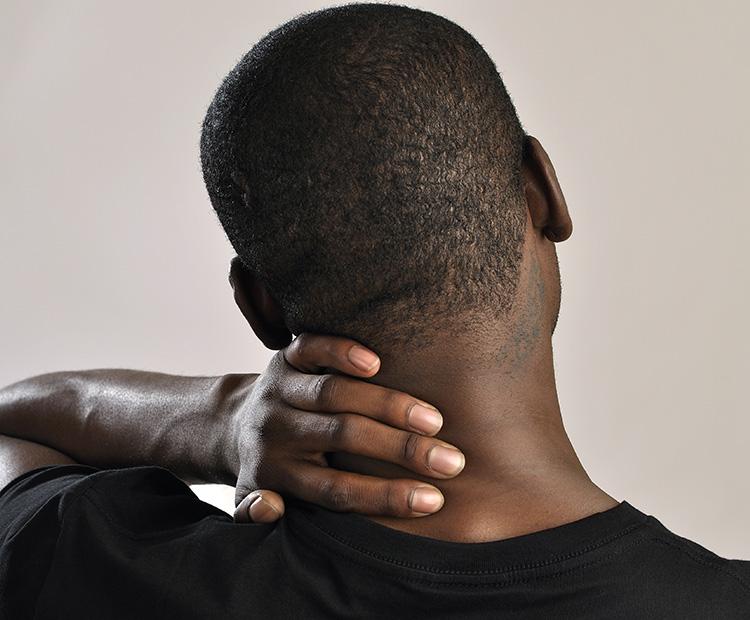What is the Best Treatment for Herniated Discs in the Neck?
Herniated discs in the neck, also known as cervical disc herniation or slipped discs, can cause significant discomfort and disrupt daily life. While many treatment options are available to reduce this pain and discomfort, choosing the right treatment begins with understanding the available options and consulting a healthcare provider.
This article will take a closer look at the causes, symptoms, and diagnosis of herniated cervical discs, along with recommended treatments for managing chronic pain.
For more answers about herniated cervical discs or to find the best pain management and treatment options, call us today at (480) 573-0130 or contact us online.
What Causes Herniated Discs in the Neck?
Cervical discs act as cushions to the bones in the neck. However, age-related wear and tear, known as degenerative disc disease, can cause them to break down. Injuries may also damage the disc's tough outer layer. When this happens, the inner core can protrude into the spinal canal, leading to a herniated disc.
What Are the Symptoms of Herniated Discs in the Neck?
Bulging discs press on nerves near the spinal cord, causing pain and sometimes numbness. The pain may be described as:
- Sharp
- Shooting
- Burning
- Tingling
The pain sensations may also travel towards the shoulder blades, down the arms, or even towards the hands and fingers. This condition is also known as radiculopathy. It may vary in severity and may increase with movement, limiting an individual’s range of motion.
How Are Herniated Discs in the Neck Diagnosed?
A healthcare professional can diagnose a cervical herniated disc or “slipped disc” after a physical exam, history, and imaging studies. Some of the tests that can be performed include:
- X-rays
- CT scans
- MRIs (this is the best option to visualize soft tissue structures in the neck)
- Nerve conduction studies
- Myelograms
- Electromyograms
What Are Some Treatment Choices for Herniated Discs in the Neck?
As many as 75-90% of people with herniated cervical discs do not need invasive treatment and will improve with conservative treatment and pain management alone.1 First-line treatments for bulging discs in the neck include rest, immobilization (such as a cervical collar), pain medication, and physical therapy.
For those who need further treatment to stabilize the cervical vertebrae and control severe pain, there are several options:
Degenerative Disc Spine Care (DISC) Procedure
The DISC procedure is a nonsurgical treatment option for herniated cervical discs. During the procedure, an allograft (donor tissue) and additives are injected into the cervical disc space to help repair damage and relieve pain. This graft helps stimulate the body’s natural healing by allowing new cells to grow and promotes tissue regeneration.
Herniated Disc Epidural Steroid Injections
An epidural steroid injection for a herniated disc is a minimally invasive medical procedure involving a steroid injection into the epidural space surrounding the spinal cord. This procedure is primarily used to reduce inflammation and pain caused by herniated discs.
Laser-Assisted Neural Decompression (LAND) Procedure
The LAND procedure is a less-invasive alternative to traditional minimally-invasive spine surgery. Small incisions, special imaging, and laser treatment allow faster recovery and more effective relief.
Surgical Options
Surgical options are also available to treat herniated discs in the neck. These can include:
- Spinal fusion
- Discectomy
- Microdiscectomy
- Total disc replacement
- Foraminotomy
Although these invasive procedures may have a longer recovery time, they may be more appropriate treatment options for severe cases. Consult with a healthcare professional to determine if surgery will be necessary.
Deciding on the Best Treatment for Herniated Discs in the Neck
Choosing the best treatment and pain management for herniated discs in the neck can feel overwhelming. Luckily, a board-certified specialist can provide expert and personalized guidance.
Remember, there are risks and benefits to each treatment offered. Some tips for having an effective conversation with a healthcare provider include asking questions like:
- What are the benefits of this procedure?
- What are the risks? How common are they?
- What is the recovery time?
- Does insurance cover this procedure?
- Are there any restrictions during or after recovery?
- Is there another option that is also recommended?
Writing questions down before an appointment, bringing a support person, and asking clarifying questions for anything difficult to understand can also ensure a fully informed decision.
At Advanced Spine and Pain, we can help you decide on the best treatment plan based on individual factors to help provide long-term pain relief from chronic pain caused by herniated discs in the neck. Our board-certified pain specialists have experience with minimally invasive treatments for herniated disc pain, like epidural steroid injections, medications for pain relief, physical therapy, and other options.
Get started today by contacting us online or calling (480) 573-0130 today.
References
1. https://www.ncbi.nlm.nih.gov/books/NBK546618/

